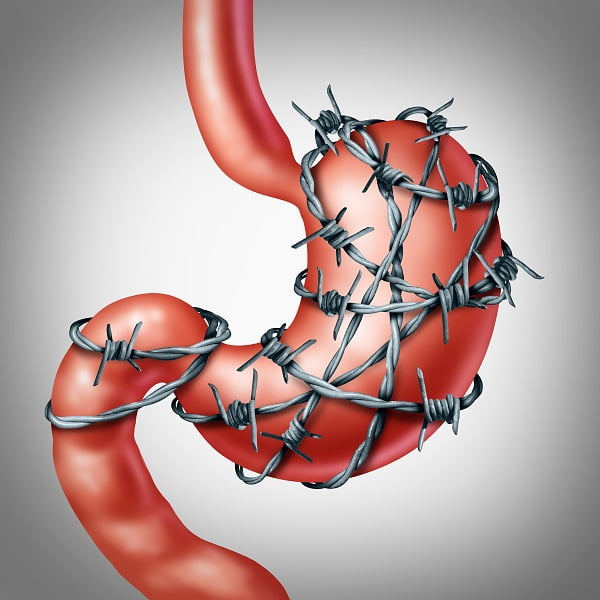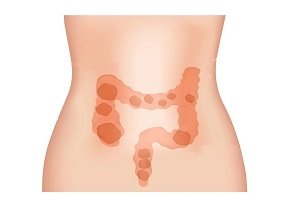What Causes Constipation?
- Updated on: Jul 9, 2024
- 5 min Read
- Published on Apr 19, 2021
Causes of constipation
Constipation happens when the colon absorbs too much water from the stool making it hard and dry. This situation arises when the muscles in the colon contract very slowly, and the stool also moves too slowly. Mostly constipation is not caused by one specific condition and it may be difficult to identify the exact cause.

However, several factors contribute and increase the chances of having constipation, including:
Aging
With age, metabolism slows down, resulting in the less active intestine. The muscles in the digestive tract do not work well as the person ages. The solution to this is adopting preventive measures before the condition becomes worse.
Lifestyle and diet
Poor diet and an inactive lifestyle is the main culprit of constipation. Given below are the factors that can leave a person constipated:
Bad toilet habit
Bowel movements can be controlled voluntarily to an extent. This means that the normal urge of defecation can be delayed. Ignoring the natural call to have a bowel movement can delay the urge.
The longer the time period of delay, the drier and harder the stool will become, giving rise to constipation.
Physical inactivity
Physical inactivity is one of the main causes of constipation. Physical inactivity can be because of the following reasons:
- Older adults tend to have a more sedentary life compared to younger people.
- People have been bedridden for a long time (several days or weeks).
Physical activity keeps the metabolism high and the body functions normally. Physically active people have fewer chances of being constipated than inactive people.
Changes in routine
Travelling changes the normal routine of an individual. This has a negative impact on the digestive system. The factors that affect the normal routine are:
- Different timings of eating food.
- Different timings of going to bed.
- Suppressing the urge due to a reason (non-availability of toilets and bathrooms).
All these changes raise the risk of constipation.
Lack of fiber in diet
Fiber promotes bowel movements and prevents constipation. A diet that lacks fiber may reverse the situation causing difficulty in bowel movements. Therefore, it is important to consume foods rich in fiber such as fruits, vegetables, and whole grains.
Dehydration
Dehydration is one of the most common causes of chronic constipation. The food makes its way from the stomach to the large intestine (colon). If an individual does not have enough water in his body already (if he is dehydrated), the large intestine soaks up water from the food waste. This makes the food waste hard and dry making it difficult to pass through.
Dairy products
Milk, cheese and ice creams are said to be binding or constipating foods. It is because they have high-fat and low-fiber content. They can cause constipation in many individuals especially toddlers. A diet high in cheese and low-fiber or high-fat foods like eggs and meat can also slow down the digestion.
Alcohol and caffeine
Alcohol and caffeine both are dehydrating making the body to lose more than enough water. They also slow down the digestion process and irritate the bowel which again worsens the constipation symptoms.
Medications
The most common medications that cause constipation are:
- Antacids containing aluminum and calcium are used to neutralize stomach acid.
- Anticholinergics and antispasmodics are used in the treatment of intestinal muscle spasms.
- Anticonvulsants are used to prevent seizures by decreasing abnormal electrical activity in the brain.
- Calcium channel blockers prevent calcium from entering into the cells of the heart to treat high blood pressure and heart disease.
- Diuretics are used to help the kidneys to remove fluid from the blood.
- Iron supplements are used to build and maintain iron levels in the blood.
- Medicines used to treat Parkinson’s disease.
- Narcotics are used to treat severe pain.
- Medicines used to treat depression.
Hormonal disorders
A shift in hormonal balance can affect the waste elimination process as much as other body functions. Following are the hormonal disorders that affect constipation:
Hypothyroidism
Constipation is one of the side effects of hypothyroidism. Under active thyroid hormone slows down most of the body functions including the digestive system which eventually gives rise to constipation.
During menstrual periods
At the time of a woman’s menstrual periods, estrogen and progesterone levels increase. These hormonal changes bring about constipation and difficult passage of stools.
During pregnancy
Constipation is caused by pregnancy in two ways:
- During pregnancy, the increased levels of progesterone make the muscles of the intestine to relax. This affects the muscle contractions and the evacuation of fecal matter gets delayed. Delay also hardens the stool making the excretion even more difficult.
- The uterus may compress the intestine and slows down the passage of food.
Problems with the colon or rectum
Problems in the colon and rectum area are common. Some of them are given below:
Irritable bowel syndrome
Irritable bowel syndrome (IBS) is a group of symptoms that changes the bowel movement patterns. It includes pain or discomfort in the abdomen. The change in the bowel habit may cause constipation.
People suffering from irritable bowel syndrome (IBS) are at high risk of getting constipated than the rest of the population.
Tumors
A tumor in the middle to lower portions of the colon, or in the rectum can compress or restrict the passages of the stool and cause constipation.
Hirschsprung disease
Hirschsprung disease is a disorder of the colon in which certain nerve cells (known as ganglion cells) are absent by birth. In absence of these nerve cells, the bowel does not work well. It may cause blockages in the bowel because the stool does not move through the bowel normally. This causes chronic constipation (severe constipation).
Health conditions
Constipation is sometimes a side effect or symptom of many health conditions. These conditions cause stool to pass more slowly through the colon, resulting in constipation. The conditions include:
Neurological disorders
Parkinson’s disease (a disorder of central nervous system that affects movement), stroke, spinal cord injuries, chronic idiopathic intestinal pseudo-obstruction (severe impairment in the ability of the intestines to push food through) are some neurological orders that give rise to constipation.
Diabetes
The nerves of the intestines control how long solid food waste remains in the intestines. In diabetes, these nerves got damaged by high blood sugar levels. This may cause food and waste products to move through the intestines too slowly, causing constipation.
Systemic diseases
Systemic diseases are the ones affecting the entire body, rather than a single organ or body part. Lupus (immune system attack its own tissues), scleroderma (chronic hardening and tightening of the skin and connective tissues) and amyloidosis (build-up of an abnormal protein-amyloid in the heart, kidneys, liver or other organs) are the systemic diseases that cause constipation.
Cancer
Cancer that affects the nerves in the spinal cord can slow down or stop the movement of the bowel. This causes constipation. Also, a tumor in the stomach can block or squeezes the digestive system causing constipation.
Depression
Depression causes a general slowdown in the body’s normal processes including digestive system.
Overuse of laxatives
Laxatives are commonly known as “stool softeners”. They help to wet and soften the stool. Laxatives also help relieve and prevent constipation. But they are not safe for long-term use. Using them regularly makes the body to get used to their action and gradually the dose needs to increase to get the same effect. Using them becomes a habit and when they are stopped constipation occurs.












